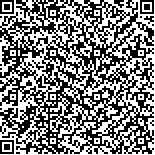| 摘要: |
| [目的]农民耕地原子化程度不断加深,现行的家庭联产承包责任制已不能适应农村商品化和市场化的进程,严重制约了农村地区的经济发展。对山东部分农村地区农户进行耕地转入和转出意愿对比分析,以促进农村地区耕地流转提出可行性的建议,以期加速农村地区市场化进程,实现经济快速发展。[方法]以计划行为理论为基础,文章以行为态度、主观规范、感知行为控制3个潜在变量, 11个可测变量构建农户耕地转出和转入意愿模型,以山东省6个地区549户农户的实地调查数据为样本,利用结构方程模型对农户耕地流转意愿进行实证分析。[结果]行为态度和知觉行为控制对农户耕地转入和转出意愿都具有显著影响,且标准化路径系数都为正; 主观态度对耕地转入意愿具有显著性影响,其标准化路径系数为负,对转出意愿的标准化系数为正; 11个可测变量分别对相应的潜在变量都有显著性影响。[结论]行为态度对农户耕地转入和转出的影响效果不同,转入耕地的农户主要从耕地固有价值出发,而转出耕地的农户主要从经济理性考虑; 主观规范中4个可观测变量对农户耕地转出和转入的影响具有一致性; 知觉行为控制中农户的契约意识对耕地转出重要性大于耕地转入。 |
| 关键词: 计划行为理论耕地转入耕地转出结构方程模型流转意愿 |
| DOI: |
| 分类号:F3211 |
| 基金项目:国家自然科学基金项目“基于群决策和序数理论的政府采购专家评价意见集结模式研究”(71173137); 国家社科重大项目“环境治理的市场化制度与社会化共治体系研究”(15ZDC030) |
|
| A COMPARATIVE STUDY ON FARMERS′ WILLINGNESS OF LAND TRANSFERING IN AND TRANSFERING OUT BASED ON THE THEORY OF PLANNED BEHAVIOR |
|
Wang Haizi, Li Chaowei, Zhang Shibin
|
|
Shandong Jianzhu University, Jinan, Shandong 250101, China
|
| Abstract: |
| With the deepening of the atomization of farmers, the current household contract responsibility system has been unable to adapt to the process of rural commercialization and marketization, which has seriously restricted the economic development of rural areas. A comparative analysis of the willingness of farmers to rural land inflow and rural land outflow in some rural areas in Shandong province was make to propose feasibility for promoting the transfer of rural land, with a view to accelerating the marketization process in rural areas and achieving rapid economic development. Based on the theory of planned behavior, this paper constructed the farmer′s rural land inflow and rural land outflow intention model with three potential variables, namely behavior attitude, subjective norm and perceived behavior control, and 11 measurable variables. Taking 549 farmer households in six areas of Shandong province as samples, it used structural equation model to analyze farmer′s rural transfer intention. The results showed that the behavioral attitude and perceptual behavior control had significant influence on farmers′ rural land inflow and rural land outflow intention, and the standardized path coefficient was positive. The subjective attitude had a significant impact on the rural land inflow intention, but its standardized path coefficient was negative, and the normalization coefficient of the rural land outflow intention model was positive. 11 measurable variables had significant effects on the corresponding potential variables. In conclusion, behavioral attitudes have different effects on the rural land inflow and rural land outflow. Farmers transferred into rural land mainly consider the inherent value of rural land, while farmers who transferred out cultivated land mainly consider economic rationality. The four observable variables in the subjective norm have a consistent effect on the rural land inflow and rural land outflow, and the contractual awareness of farmers in the control of perceived behavior is more important in the rural land outflow than the rural land inflow. |
| Key words: planned behavior theory arable land transfer arable land transfer SEM willingness to transfer |

